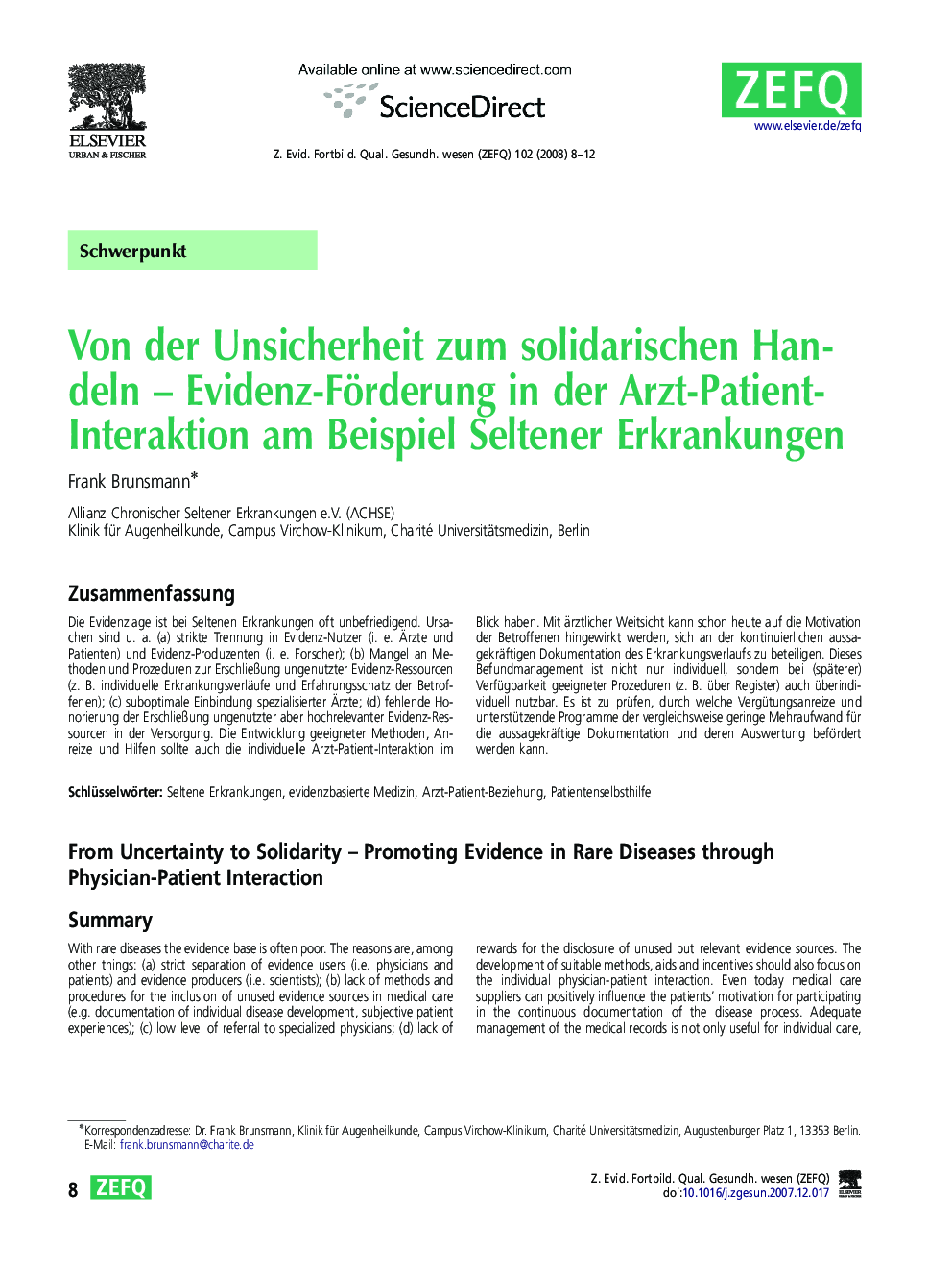| Article ID | Journal | Published Year | Pages | File Type |
|---|---|---|---|---|
| 1095231 | Zeitschrift für Evidenz, Fortbildung und Qualität im Gesundheitswesen | 2008 | 5 Pages |
Abstract
With rare diseases the evidence base is often poor. The reasons are, among other things: (a) strict separation of evidence users (i.e. physicians and patients) and evidence producers (i.e. scientists); (b) lack of methods and procedures for the inclusion of unused evidence sources in medical care (e.g. documentation of individual disease development, subjective patient experiences); (c) low level of referral to specialized physicians; (d) lack of rewards for the disclosure of unused but relevant evidence sources. The development of suitable methods, aids and incentives should also focus on the individual physician-patient interaction. Even today medical care suppliers can positively influence the patients' motivation for participating in the continuous documentation of the disease process. Adequate management of the medical records is not only useful for individual care, but - with suitable procedures like registers being available - on a collective level also. It should be checked which alterations in incentive systems and supporting programmes might be able to improve evidence-promoting documentation and analysis.
Keywords
Related Topics
Health Sciences
Medicine and Dentistry
Public Health and Health Policy
Authors
Frank Brunsmann,
